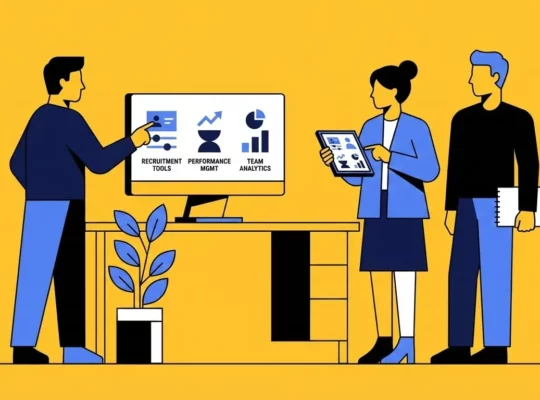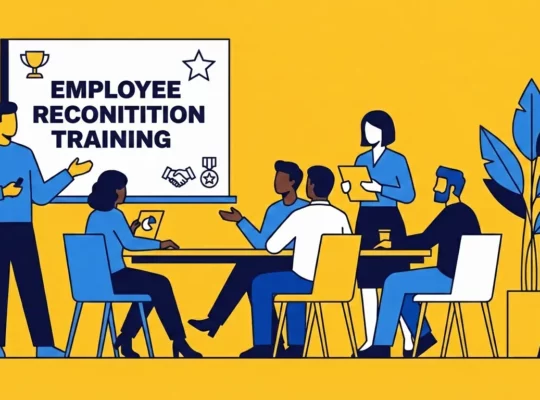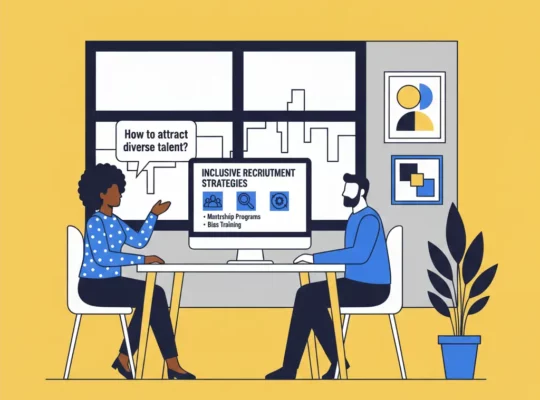Securing top talent in today’s competitive job market demands a strategic approach. With a myriad of recruitment strategies available, understanding the nuances between hiring events and job fairs is crucial for making informed decisions. While often used interchangeably, hiring events and job fairs serve distinct purposes. This guide will demystify these two strategies, empowering you to make informed decisions for your organization.
- Defining Hiring Events and Job Fairs
- Key Differences Between Hiring Events and Job Fairs
- Pros and Cons of Hiring Events and Job Fairs
- Choosing the Right Approach for Your Business
- Maximizing the Impact of Your Chosen Event
- FAQs
I. Defining Hiring Events and Job Fairs
Hiring Events
A hiring event is a focused recruitment strategy designed to fill specific roles within a short timeframe. It’s typically hosted by a single company and targets a pre-selected pool of qualified candidates. Hiring events often involve structured interviews, assessments, and on-the-spot job offers, creating a streamlined and efficient hiring process. The primary goal of a hiring event is to quickly identify and hire top talent for specific positions.
Job Fairs
In contrast, a job fair is a broader recruitment event featuring multiple companies from various industries. It serves as a platform for job seekers to explore different career options, network with potential employers, and gather information about job opportunities. Job fairs typically attract a larger and more diverse pool of candidates compared to hiring events. While some job offers may be extended on-site, the primary focus is on initial connections and generating leads for further recruitment processes.
II. Key Differences Between Hiring Events and Job Fairs
To effectively select the most suitable recruitment strategy, understanding the key differences between hiring events and job fairs is crucial.
| Feature | Hiring Events | Job Fairs |
| Number of Employers | Single employer | Multiple employers |
| Event Purpose | Focused on filling specific roles | General networking and exploration |
| Candidate Experience | Structured, with pre-selected candidates | Less structured, with multiple employer interactions |
| Outcome Expectations | Immediate job offers or advanced recruitment stages | Lead generation and potential future opportunities |
Hiring events are focused recruitment initiatives centered around specific roles within a single organization. They typically involve a structured process with pre-selected candidates, often culminating in on-the-spot job offers.
In contrast, job fairs are broader-based recruitment events featuring multiple employers from diverse industries. They provide a platform for job seekers to explore various career options and network with potential employers
By understanding the distinct characteristics of each approach, organizations can make informed decisions about which strategy aligns best with their recruitment goals and resources.
III. Pros and Cons of Hiring Events and Job Fairs
Hiring Events
Advantages
- Targeted Recruitment: Focus on specific roles and pre-qualified candidates.
- Efficiency: Streamlined process for both employers and candidates.
- Immediate Feedback: Quick decision-making and candidate communication.
- Stronger Employer Branding: A more controlled environment to showcase company culture.
Disadvantages
- Limited Reach: Smaller candidate pool compared to job fairs.
- Higher Costs: Requires significant resource allocation for planning and execution.
- Potential for Overhiring: If not managed carefully, can lead to an excess of qualified candidates.
Job Fairs
Advantages:
- Wider Talent Pool: Access to a diverse range of candidates from various industries.
- Increased Brand Visibility: Opportunity to showcase the company to a large audience.
- Networking Opportunities: Potential to build relationships with other employers and industry professionals.
Disadvantages:
- Less Targeted: Difficulty in finding candidates for specific roles.
- Overwhelming: Large crowds can make it challenging to connect with potential candidates.
- Follow-Up Challenges: Managing a high volume of leads can be time-consuming.
IV. Choosing the Right Approach for Your Business
Assessing Your Recruitment Needs
When deciding between a hiring event and a job fair, it’s crucial to assess your company’s specific recruitment needs.
- Identify Target Roles: Clearly define the positions you need to fill. This will help determine if a targeted hiring event or a broader job fair is more suitable.
- Recruitment Volume: Consider the number of positions to be filled. A high volume of hires may necessitate a job fair, while a smaller number of specialized roles might be better suited for a hiring event.
- Timeframe: Evaluate the urgency of your hiring needs. If you need to fill positions quickly, a hiring event might be more efficient.
- Candidate Profile: Define the ideal candidate for the roles you’re hiring for. This will help you determine the best platform to reach your target audience.
Budget and Resources
- Financial Constraints: Consider the costs associated with each option, including venue rental, staffing, marketing, and promotional materials.
- Internal Resources: Evaluate the availability of human resources to plan, execute, and follow up on the event.
- Time Commitment: Assess the time required for event planning, execution, and post-event activities.
Employer Branding Goals
- Brand Awareness: If increasing brand visibility is a primary goal, a job fair can offer a wider reach.
- Talent Acquisition: If the focus is on filling specific roles quickly, a hiring event might be more effective.
- Employer of Choice: Both hiring events and job fairs can contribute to employer branding, but the approach will vary depending on the company’s image and target audience.
V. Maximizing the Impact of Your Chosen Event
Planning and Preparation
Effective planning is essential for the success of both hiring events and job fairs.
- Set Clear Goals: Define the objectives of your event, whether it’s filling specific roles, increasing brand awareness, or gathering market intelligence.
- Targeted Promotion: Utilize a multi-channel approach to reach your desired audience, including social media, email marketing, and job boards.
- Team Training: Equip your team with the necessary knowledge and skills to effectively interact with candidates and represent the company.
- Booth Design and Materials: Create a visually appealing and informative booth to attract attention and engage visitors.
Engagement Strategies
Whether you’re hosting a hiring event or participating in a job fair, engaging effectively with candidates is key to making meaningful connections.
- Candidate Experience: Focus on creating a positive and memorable experience for all attendees.
- Interactive Elements: Incorporate interactive activities, such as gamification or live demonstrations, to enhance engagement.
- Employer Branding: Showcase your company culture and values through storytelling and visuals.
- Data Collection: Gather attendee information and feedback to inform future recruitment efforts.
Post-Event Follow-Up
Timely follow-up is crucial to maintaining relationships with candidates and ensuring the success of your recruitment efforts.
- Timely Communication: Contact potential candidates within a specified timeframe to maintain interest.
- Talent Pool Building: Create a database of qualified candidates for future recruitment needs.
- Performance Evaluation: Analyze event data to measure success and identify areas for improvement.
- Collect employee reviews: Utilize employee review management platforms, such as Review.jobs, and listen to what your employees have to say about their hiring experience. Collect feedback and create action plans that are better aligned with the needs of candidates.
Deciding between a hiring event and a job fair requires careful consideration of your company’s recruitment needs, resources, and branding goals. Whether you opt for the targeted efficiency of a hiring event or the broad reach of a job fair, ensuring proper planning, engagement, and follow-up will maximize your success. At Review.jobs, we’re here to help you optimize your recruitment events through employee feedback, ensuring you connect with the best talent for your business.
FAQs
What is the primary difference between a hiring event and a job fair?
A hiring event is typically organized by a single employer focused on filling specific roles quickly. In contrast, a job fair involves multiple employers and is designed to connect job seekers with a variety of potential employers across different industries.
Are hiring events always in-person?
No, hiring events can be in-person, virtual, or hybrid. In-person events involve face-to-face interactions, virtual events are conducted online, and hybrid events combine both elements to reach a wider audience.
How do I decide whether to host a hiring event or attend a job fair?
Assess your recruitment needs, budget, and recruitment branding goals. If you need to fill specific roles quickly, a hiring event might be more effective. If you’re looking to increase brand visibility or fill a variety of roles, a job fair could be the better option.
How do virtual hiring events work?
Virtual hiring events are conducted online using platforms that facilitate interviews, live chats, and video conferencing. They allow employers to connect with candidates remotely, offering flexibility and broader reach.
Are job fairs more effective than hiring events for small businesses?
It depends on your goals. For small businesses looking to increase brand awareness and network with a broader talent pool, job fairs can be effective. However, if your goal is to fill specific roles quickly, a hiring event might be more beneficial.
What follow-up steps should I take after a hiring event or job fair?
After either event, promptly follow up with candidates to express interest and provide feedback. Maintain ongoing communication to build relationships and keep your company top-of-mind for future opportunities.





